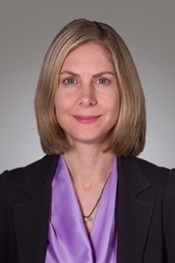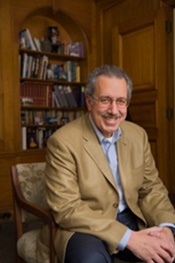Keynote Presentations
June 8th: Panel of Coaches; “Calling in Power & Culture in Coach Education: Challenging our Assumptions to Revolutionize the Profession”
Keynote Description:
What’s getting in the way of coach educators integrating culture in a way that factors in the dynamics of power, privilege and rank, individually, interpersonally and institutionally–and in our coaching profession as a whole? How do our blind spots as coach educators compromise the outcomes we want to create in our training rooms and coaching schools? How do we have real, risk-taking dialogue where we call each other in rather than calling each other out? Come hear how a group of coach educators has been naming and framing this debate in preparation for a two-day summit slated for Fall 2017 where we will:
- Question and challenge your own commonly held assumptions, beliefs and related biases that can create barriers to creating and sustaining climates of inclusion. (The “I”)
- Come together as a professional industry with the intention of co-creating an elevated global mindset. (The “WE”)
- Devise practical applications in improving coach training and education curriculum and embedding equity and diversity into our respective organization’s culture and reach. (The “IT”)
The presentation will be provocative, future-focused and action-oriented and focuses on moving the conversation into action in the areas of curriculum, school policies, field building, coaching competencies, and individual consciousness.
Participants will create awareness about their perceptions, roles and experiences and how they can be involved to affect change, and what the impact would be on their world.
Presenter Bios
Karen J. Curnow, MCC, Cohort Co-Director and Faculty Member, Georgetown University’s Leadership Coaching Certificate Program; woman; mother; White girl from the projects who raised her daughters in the middle class; first in family to earn Bachelor’s and Master’s degrees; upstate New Yorker/US American, multilingual, expatriate returnee (has lived in 5 countries as an adult); dance enthusiast; business owner; coach educator; somatic coach; and former Unitarian Universalist lay minister
Halli MacNab, PCC; Program Leader for Accomplishment Coaching, ACTO Vice President, white, Canadian, English-speaking, university educated, middle class; Lesbian, got married for the first time at the age of 44. Has an invisible disability. Non-practicing engineer, stopped working in the engineering field to become a coach. Has never truly experienced “not enough” – food, shelter, clean water, money. Life-long athlete, nature lover and unwavering “yes” to the question: “Can it be done?”
Terrence E. Maltbia, Associate Professor of Practice and Faculty Director, Columbia University’s Professional Coach Preparation Program; Black, American, Gay, Male; working-class, Baptist parents; second in his generation to earn Bachelor’s and Master’s Degrees, and the first to be awarded a Doctoral Degree; worked in corporate for over 25 years; has a non-visible disability; and a former jazz musician who enjoys theater, college football, and touring historical homes.
June 9th: Amee Olson; “An Insider’s Point of View: The Challenges and Sweet Delights of Organizational Coaching at Hershey’s”
Keynote Description:
Do the coaches you teach dream of working with large corporations? Or maybe they are internal coaches wondering how to get more buy-in from their leaders. Coaching leaders in organizations is one of the fastest growing sectors of coaching. ROI studies now prove the value a coaching culture has on improvements in productivity and results. Yet transforming a traditional corporate culture to embrace coaching is not easy. Amee Olson, the Director of Coaching and Executive Development at the Hershey Company, will share the journey of creating a coaching culture for this global organization. She has overseen the implementation of internal coaching at Hershey as well as worked with external coaches to improve the abilities of the leadership team. Marcia Reynolds, MCC, has worked with Amee in both capacities. She will interview Amee using questions provided by ACTO members prior to the conference, and there will be time to ask questions live as well. Come to this opening session to learn more about Amee’s experience at the Hershey Company: the benefits and organizational impact realized by coaching, the pitfalls and challenges that had to be addressed along the way, and nuances of what leaders in organization really want from coaching.
Presenter Bio:

Amee is the Director of Coaching and Executive Development at the Hershey Company. In her role, she oversees executive succession planning, executive development, and coaching, and is responsible for building the executive leadership bench.
Amee previously held talent management and leadership development roles at IBM. Prior to IBM, Amee lived in Europe as a senior consultant and executive coach with Wildenmann Consulting where she worked closely with clients from the technology, financial services and pharmaceutical industries.
Amee has experience leading teams to build leadership development curriculums that align with corporate strategy, to drive innovative talent and succession planning that builds executive bench, and to deliver organizational effectiveness initiatives that improve the bottom line.
Amee received her B.A. in Social Policy from Bucknell University and an M.B.A. from Yale School of Management. Amee lives in Hershey, PA with her husband, son and twin daughters.
June 10th: Dr. Richard Boyatzis;: “Coaching for Inspiration, Motivation and Engagement.”
Keynote Description:
Growing and developing is a major driving force in our quest to help others, make a difference and contribute to a better organization and society. Coaches, as a class of people who help others establish a deep emotional connection with others called resonance, whether teacher-student, professor-student, doctor-patient, nurse-patient, coach-coachee, mentor-protégé, manager-subordinate, and likely parent-child and spouse/partner to spouse/partner. They are literally, in tune with clients. Their own levels of emotional intelligence allow them to create and nurture these resonant relationships. They use their EI on the path through mindfulness, hope, compassion, and playfulness.
These experiences of mindfulness, hope, compassion, and playfulness are essential to renewal of the human organism at the neurological, hormonal, emotional, and behavioral levels. Based on decades of research into emotional intelligence competencies and longitudinal studies in their development, Professor Richard Boyatzis will lead the audience through examples of how coaching with compassion (i.e., coaching a person to the PEA, their vision and values) is key to leadership development and more resonant relationships. He will describe recent fMRI studies on coaching to the Positive Emotional Attractor (PEA) versus the Negative Emotional Attractor (NEA), as well as recent doctor-patient studies showing that arousal of the PEA increased treatment adherence for Type II Diabetics. He will explain why it is central to neuro-endocrine renewal in the human body (which is the only antidote to the ravages of chronic stress). .
This session will address the following: A process for developing sustainable improvement on EI, resonant relationships and the central role of compassion in it; understanding the psycho-physiological role of the Positive Emotional Attractor and the Negative Emotional Attractor in motivating change or encouraging the status quo regression; perceiving how coaching with compassion is effective in helping people change in sustainable ways, but coaching for compliance is not; understanding the neural activations involved in these two forms of coaching and why one prepares a person to consider change and learning and the other closes their minds; how to coach others to develop EI, resonant leadership, and to sustainably change.
Presenter Bio:
Richard E. Boyatzis is Distinguished University Professor and Professor in the Departments of Organizational Behavior, Psychology, and Cognitive Science at Case Western Reserve University, and HR Horvitz Professor of Family Business, as well as Adjunct Professor in People/Organizations at ESADE. He earned his BS in Aeronautics and Astronautics from MIT, and a MS and Ph.D. in Social Psychology from Harvard University. Using his Intentional Change Theory (ICT), he studies sustained, desired change at all levels of human endeavor from individuals, teams, organizations, communities and countries. Before becoming a professor, he was CEO of the research consulting company McBer and Company (now part of the Hay Group/Korn Ferry) for 11 years and COO of the market research company Yankelovich, Skelly & White for three years. He was ranked #9 Most Influential International Thinker by HR Magazine in 2012 and 2014. He is the author of more than 200 articles on leadership, competencies, emotional intelligence, competency development, coaching, neuroscience and management education. His Coursera MOOCs, including Inspiring Leadership Through Emotional Intelligence have over 635,000 enrolled from 215 countries. His 7 books include: The Competent Manager; the international best-seller, Primal Leadership with Daniel Goleman and Annie McKee; and Resonant Leadership, with Annie McKee. He has over 5,500 hours of coaching, has been teaching and training coaches since 1970 and published 22 articles on coaching. Professor Boyatzis acquired his bachelor’s degree in aeronautics and astronautics from MIT before going on to obtain his MS and PhD in social psychology from Harvard University.

